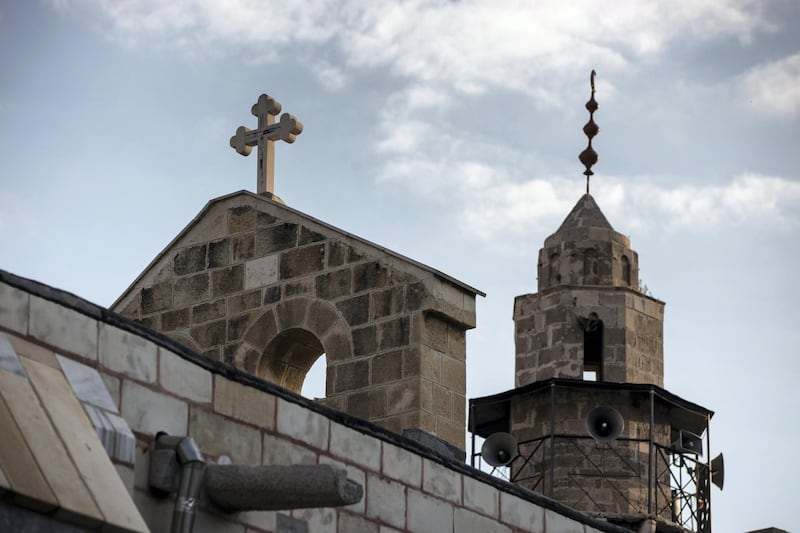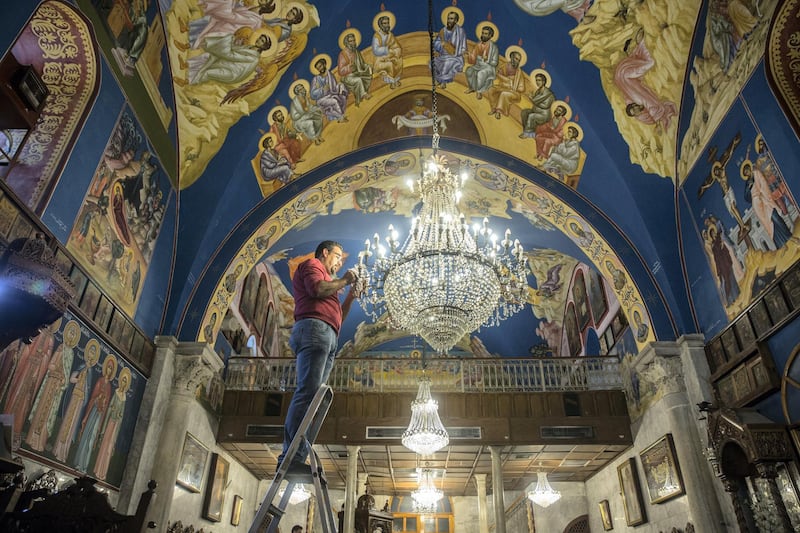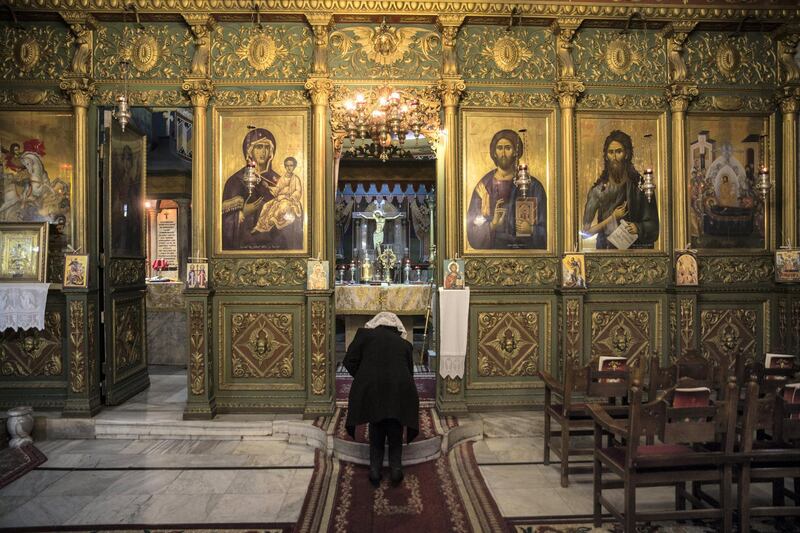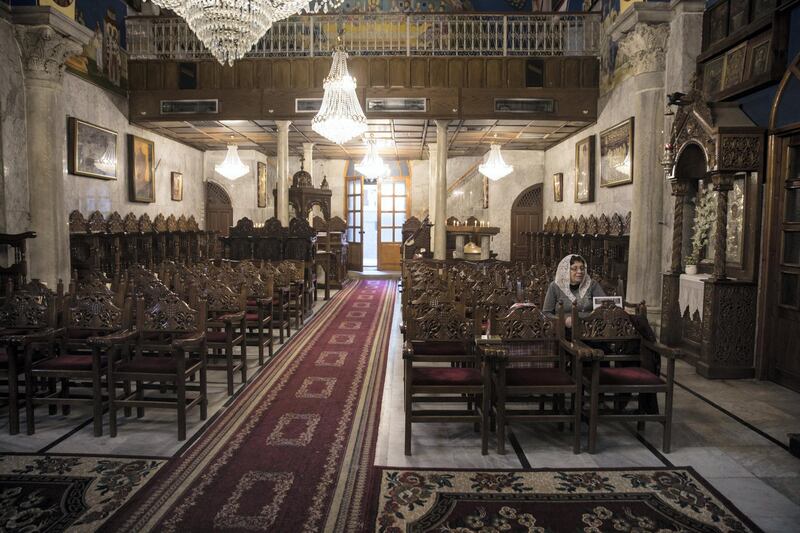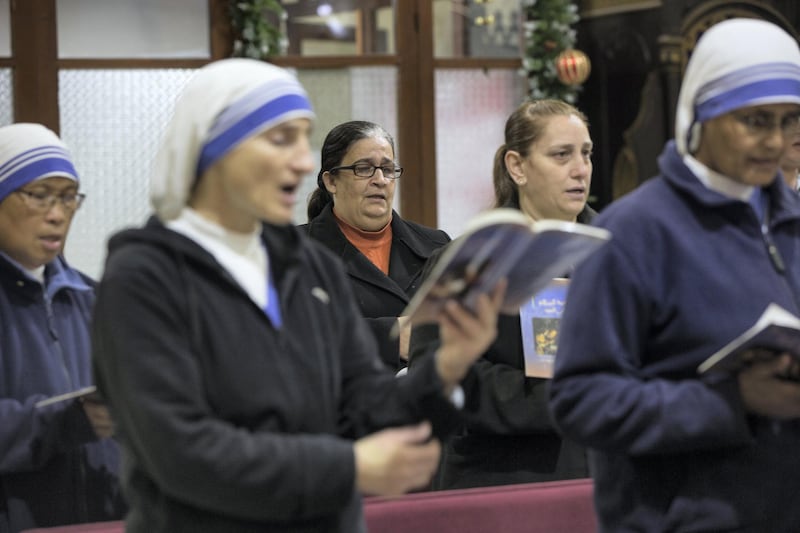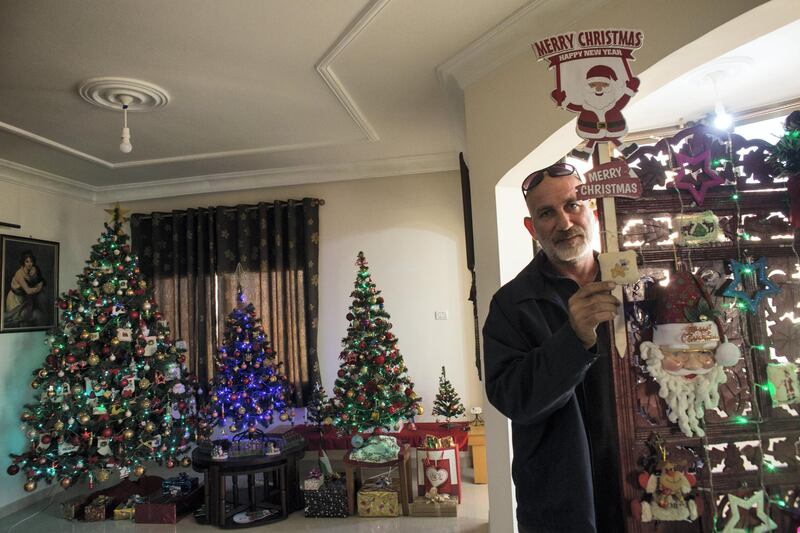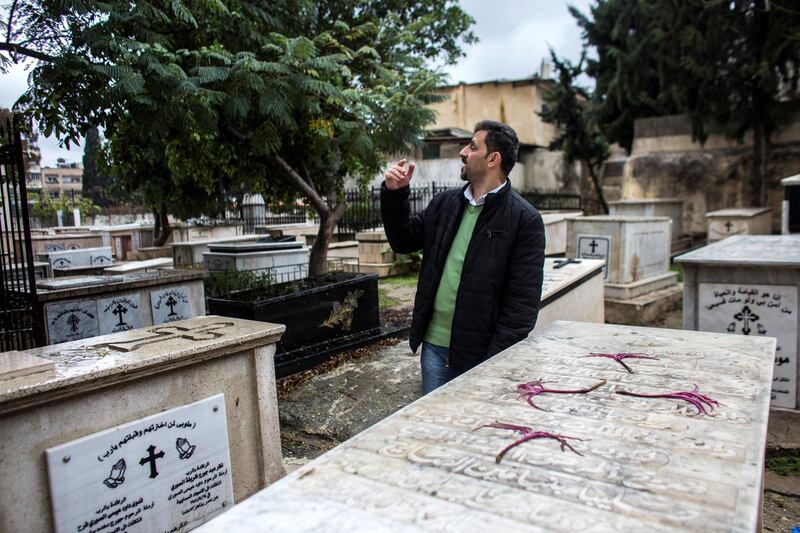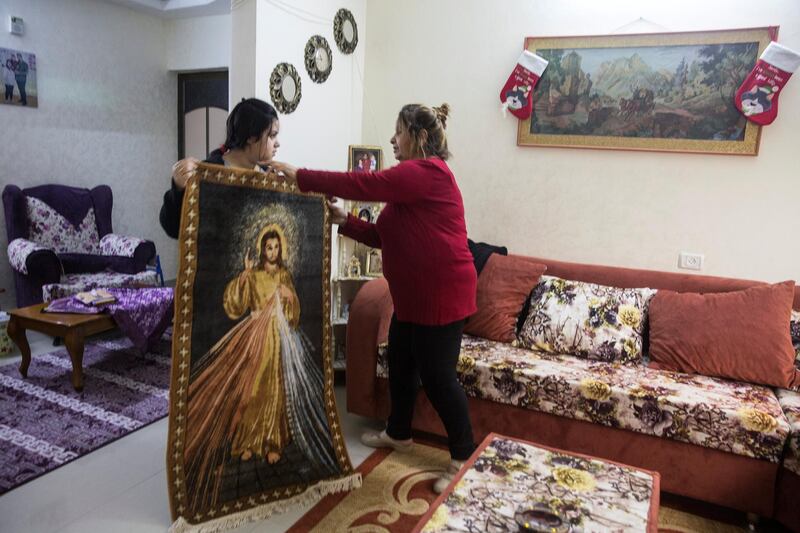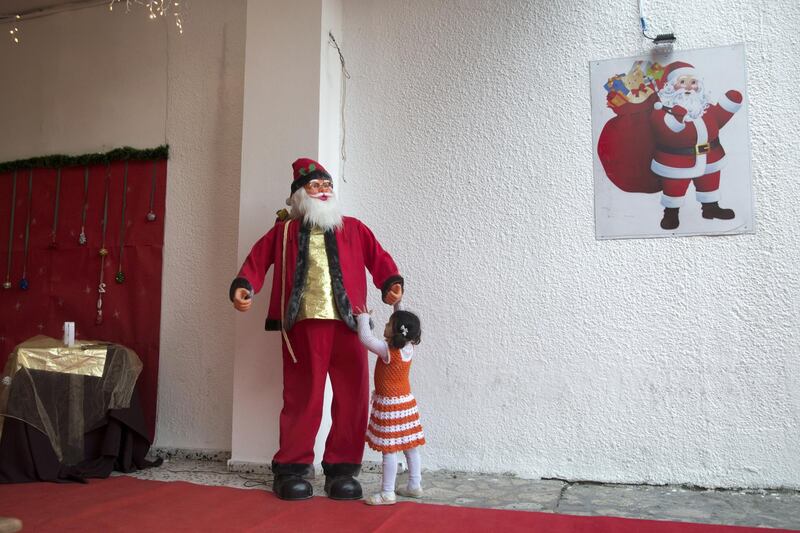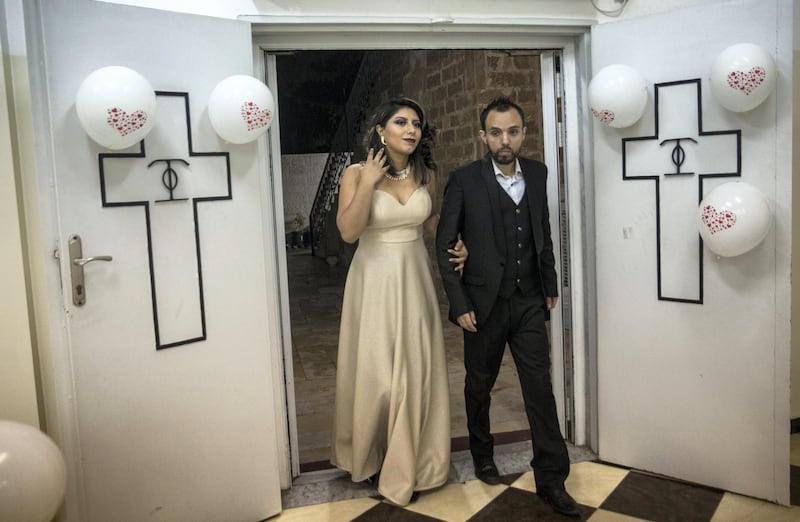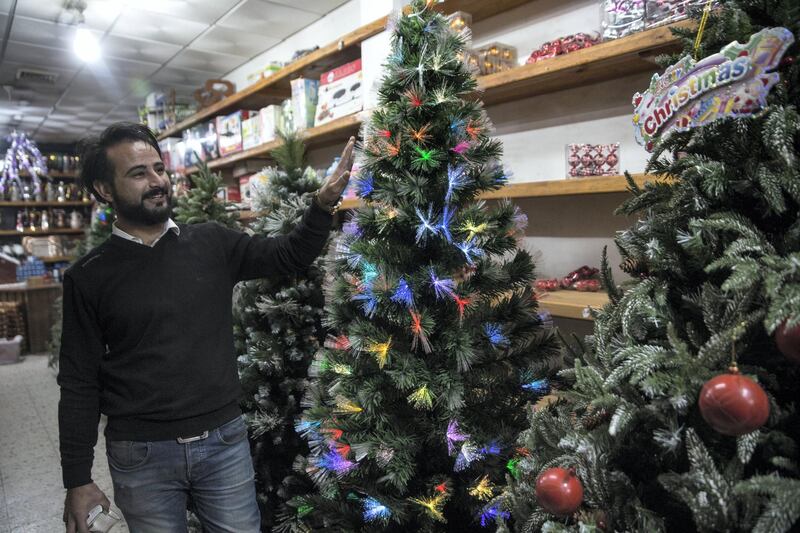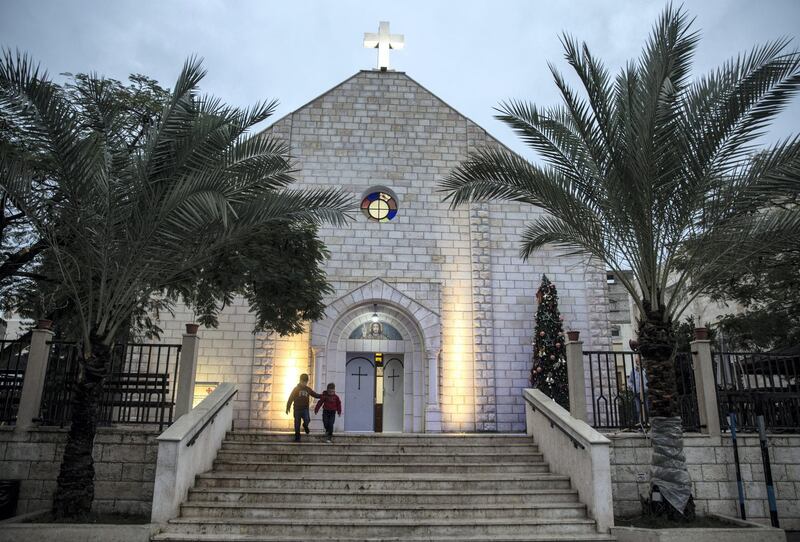Kamal Ayyad is feeling hopeless this Christmas. He is one of more than 100 Christians in Gaza who have been denied a travel permit to Bethlehem, the birthplace of Jesus.
“Israel refused my permit,” Kamal, 49, tells The National, speaking in the 6th century Church of Saint Porphyrius, where he works as a public relations officer.
The walled-off Greek Orthodox church sheltered about 1,000 Muslim neighbours during the 2014 war with Israel.
Gisha, an Israeli human rights group focused on freedom of movement, says up to 104 of Gaza’s 1,000 Christians have "security blocks" that mean they will be unable to celebrate Christmas with family members living outside the Palestinian enclave.
This holiday season the Israeli authorities issued just 590 Gaza residents with permits to travel through Erez – the border crossing that separates Gaza from Israel – to East Jerusalem and the West Bank. Another 300 may be issued, Gisha said.
For many Palestinians, these permits represent their only chance to see relatives on the other side.
_______________
Read more:
Gaza families mourn loss of a generation as youth clamour to leave enclave
London exhibition highlights Palestinian plight through tapestry
US seeks to condemn Hamas by name in landmark UN resolution
The twin strategies of violence crippling Gaza
_______________
But among the widespread disillusion, some Gazans are hopeful this Christmas.
Kamal’s distant relative, Rimon Ayyad, 28, is all smiles. He recently married Marina, 19, from Cairo, who moved to Gaza to be with him.
Their wedding is one of the few Christian unions to take place in the enclave this year.
A giant arc of yellow and white balloons framed the couple’s seat of honour at a recent gathering to celebrate their union. In the background, music played and the bride wore a white wedding dress.
“I’m more optimistic this year,” says the new groom, who has a degree in nursing and hospital administration but, like so many in Gaza, remains unemployed. “I’ve just started my new life.”
Rimon and Kamal represent different sides of the enclave’s reality – the sweet and sour of Gaza’s holiday season, where life and celebrations go on.
The last time Kamal was given an Israeli permit to travel to Bethlehem was two years ago for Orthodox Christmas on January 7.
This year, the Israeli authorities gave his three young daughters permission to cross the border, but not him or his wife. He will not let his daughters travel on their own, so on Christmas day they will attend Mass at St Porphyrius’s in Gaza city before a big meal with friends and family.
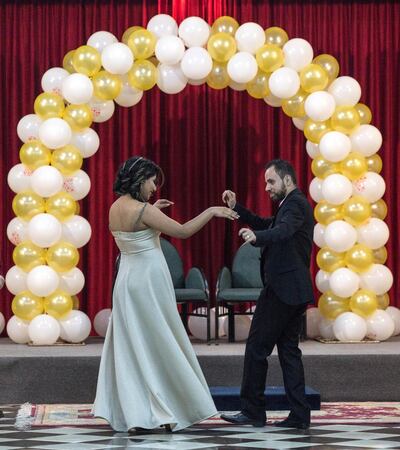
Around Gaza city, hotels are strung with Santa Claus hats, lights and New Year signs. Two Muslim-run shops sell Christmas decorations and Christian families are busy preparing traditional holiday sweets, such as aniseed cookies and wheat berry pudding.
Christians in Gaza do not exchange Christmas presents. Instead, they buy clothes and give newly-weds gold, which their community is famous for working.
But the birth of Jesus will be celebrated against the backdrop of loss. Kamal recalls a time when the tiny coastal enclave had 3,000 Christians and a Christmas tree prominently displayed in Gaza city’s main square.
He says he preferred Christmas when he was a child.
“When the Palestinian Authority was here in Gaza it was better for Christians than Hamas,” Kamal says. “We had more freedom.”
Hamas ousted the Fatah-dominated authority in 2007, after which Israel and Egypt imposed a land and sea blockade on Gaza.
Hamas has ruled with an iron fist. Over the past decade, Hamas and Israel have fought three wars, along with countless deadly flare-ups.
But Kamal, a PA employee, does not romanticise the past. Over the years, the PA, led by Mahmoud Abbas, has halved his and other employees’ salaries in a punitive move to put pressure on Hamas, which has made daily life for Gazans a struggle.
“The solution here is not Hamas,” Kamal says “The solution here is unity between Hamas and Fatah. And the solution here is also to have our own independent Palestinian state. That will solve the electricity problem, the water problem, the jobs. Everything.”
But while he looks to the future, Kamal, who at 16 was jailed by Israel during the First Intifada, cannot shake the past.
“The Christian community has changed a lot,” he says. “It’s changed because of the First Intifada, the Second Intifada, the siege, the political divisions …
“A long time ago we had the ability to travel to Jerusalem, to the West Bank, to Egypt or abroad. It was very easy. And of course it was easy to have jobs in Israel, Egypt or abroad.”
With Gaza’s unemployment and population density among the highest in the world, Kamal says it is no surprise Christians are trying to relocate. Families are having fewer children than earlier generations because of financial restrictions, he says.
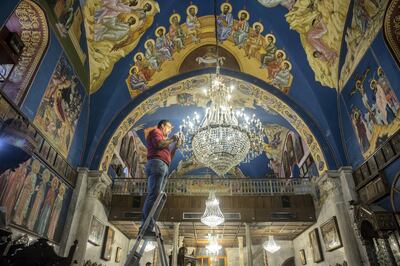
Rimon also wants out. He has applied to the US Green Card lottery.
“It’s not just the Christians,” he says. “Christian and Muslims, anyone who has the chance to go outside for a better job or a better education, they will leave Gaza. It’s like a prison.”
For many Gazans, Christmas time lays bare a year’s worth of hopes and fears.
Rimon’s relative Siham Ayyad, 55, says she has not put up a Christmas tree. She is still mourning the death of her sister just more than a month ago.
Siham is originally from Tulkarem, in the West Bank, where some of her family still live. She has not seen them in three years.
Last time she visited them for Orthodox Christmas, Siham had trouble getting back into Gaza. The mother of four and now grandmother says she does not want to risk being apart from her family in Gaza again.
At the home of her daughter, May Ayyad, 26, is decorating her small tree adorned with Christmas lights.
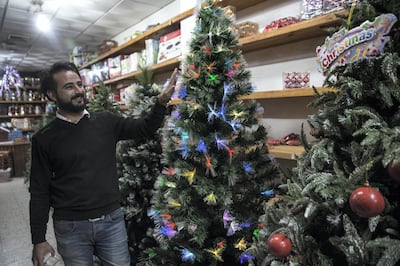
Electricity is limited and unpredictable, and the family’s decorations add an extra strain. May says she received a permit to travel to Bethlehem with her husband, but worries they will not receive his salary in time to pay for the trip.
The 11-year siege of Gaza has wrecked the tiny enclave, hurting its people and economy. More recently, protests on the border and Israel’s use of force have dominated headlines.
More than 215 Palestinians have been killed in 39 weeks and more than 18,000 injured. But Gaza’s Christians say theirchildren did not take part.
Back at the wedding celebration, neurologist Dr Maher Ayyad, 67, offers a heartfelt holiday greeting.
“You cannot lose hope,” he says. “No peace comes without problems so we will have some difficulties, but in the end peace will come to this area.
“We are still hoping that God will give the wisdom to all of our leaders to sit together and have peace.”
